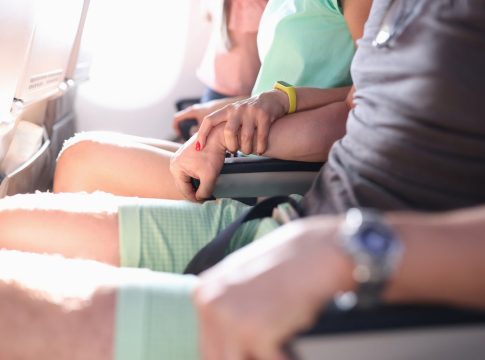Navigating Fear of Flying: Understanding and Managing Your Anxieties
The thought of boarding an airplane can trigger a wave of anxiety for many, especially in the aftermath of tragic aviation incidents. Recent events have brought these fears to the forefront, leaving many to wrestle with their feelings about flying. Understanding these emotions and how to cope with them can pave the way to calmer travels.
A Natural Response to Tragedy
After a high-profile accident, it’s natural for individuals to experience heightened anxiety about flying. Social media platforms are filled with expressions of concern as people grapple with their fear after witnessing such tragedies. It’s important to note that these feelings, while intense, are common reactions to distressing news.
Psychologist Professor Robert Bor emphasizes that fear of flying is frequently ranked among the most prevalent phobias. However, this fear does not always translate into a long-term avoidance of air travel. Unlike other phobias, fears surrounding flying often coexist with a necessity to travel—whether for work, family visits, or vacations.
Understanding Your Anxiety
Fear of flying often leads to increased physiological responses—sweating, racing thoughts, or negotiation with oneself about safety. These reactions indicate that our bodies are trying to alert us to perceived threats. However, understanding this instinctual response can help reframe it.
-
Common Triggers: It’s not just plane crashes that can spark anxiety about flying; a myriad of factors contribute, including stress in our daily lives and the natural human unfamiliarity with flying.
- Coping with Fear: Many who struggle with flying fear still choose to board planes when necessary, demonstrating the resilience of the human spirit in managing anxiety.
Empowering Strategies for Fearful Flyers
If you find yourself grappling with a fear of flying, consider these constructive approaches:
-
Education: Learning about aviation safety and the actual statistics surrounding air travel can provide reassurance. Understanding that flying is statistically one of the safest modes of transportation can alleviate concerns.
-
Therapeutic Support: Engaging with professionals—therapists or counselors—can offer practical strategies to manage and reduce anxiety. Cognitive Behavioral Therapy (CBT) is particularly effective for addressing phobias.
-
Mindfulness Techniques: Employing deep breathing, meditation, or visualization can help calm your mind before and during flights. These practices encourage the body to enter a state of relaxation, countering the natural fight-or-flight response.
-
Distraction: Keeping busy during the flight with books, podcasts, or calming music can help shift your focus away from anxiety.
- Validation of Feelings: Acknowledging that your feelings are valid is key. It’s okay to feel anxious, and discussing these feelings openly with travel companions can provide much-needed support.
Conclusion: Finding Calm Amidst the Clouds
While plane crashes may cause a surge of fear and anxiety, they do not signify a newfound danger in aviation. Data shows that air travel safety remains consistent, despite alarming headlines. For many, awareness of this fact alone can bring solace.
The journey toward overcoming a fear of flying is personal and varies from one individual to another. Remember, it’s okay to seek help and take steps at your own pace. Whether using self-help strategies or seeking professional guidance, empowering yourself with knowledge and support is invaluable.
The sky may seem daunting, but it’s important to recognize that every step taken toward understanding your fears is a step toward soaring comfortably through the clouds.

Covers wellness, nutrition, mental health, and daily life tips.
Bio: Talia brings a background in health journalism and holistic living to help readers live better, one tip at a time.

